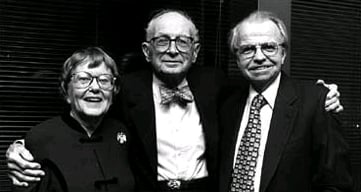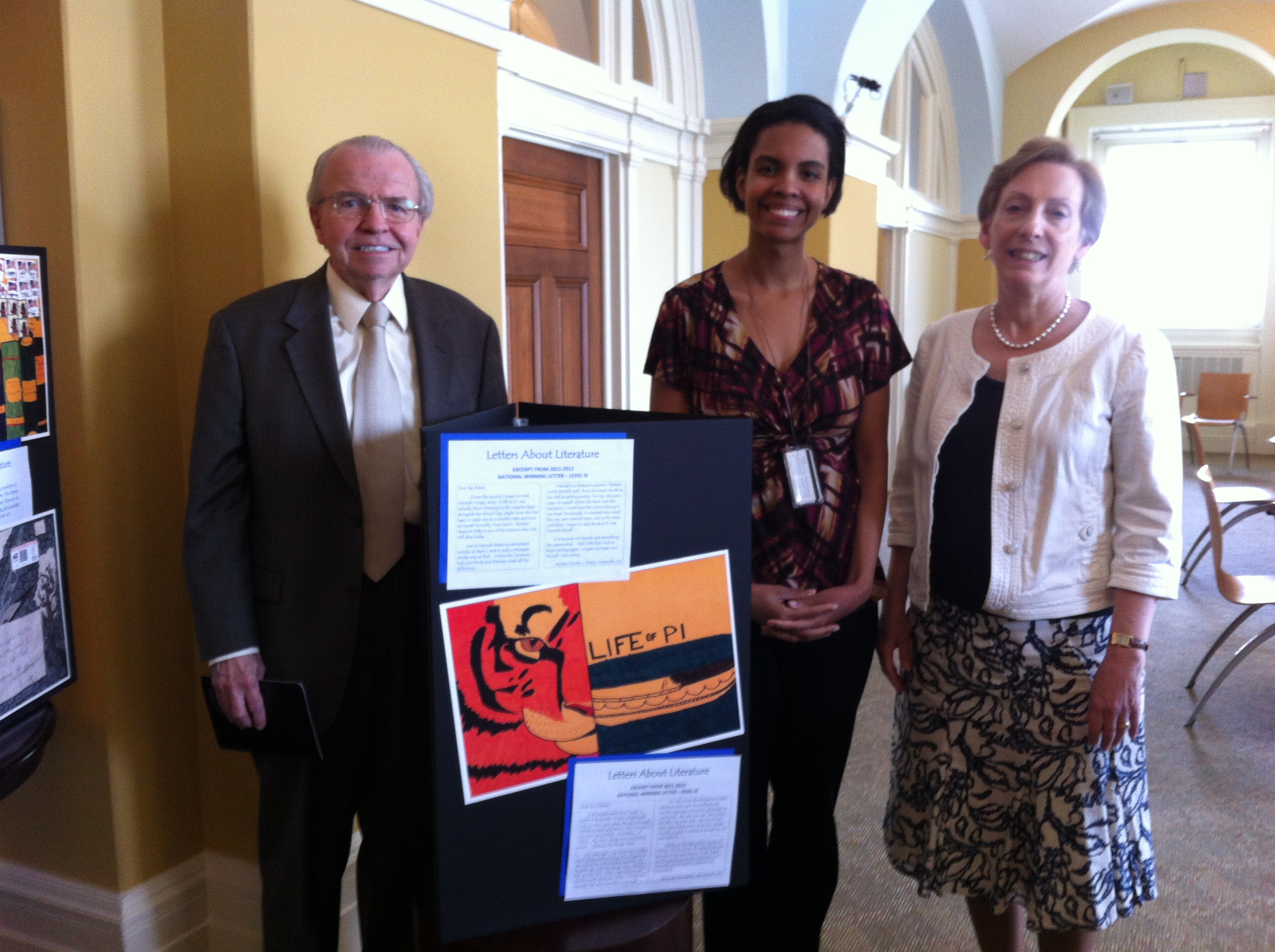The Center for the Book at the Library of Congress continues its celebration of the written word with the 2013 National Book Festival. Yesterday this year's line-up was announced, and the event promises to be exceptional. This week we sat down with Dr. John Y Cole, founding director of the Center for the Book in the Library of Congress. Under Dr. Cole's leadership, the center plays a crucial role in the annual National Book Festival; for example, Dr. Cole has served as its principal author coordinator since the festival was established in 2001. We discussed the role of the festival, along with the future of books, reading, and literacy.

A Year-Round Event
This year Margaret Atwood, Marie Arana, Taylor Branch, Don DeLillo, Khaled Hosseini, Barbara Kingsolver, Brad Meltzer, Joyce Carol Oates, and US Poet Laureate Natasha Trethewey will be among the over 100 authors to participate in the National Book Festival. They continue a rich literary tradition; Laura Bush spearheaded the first festival in 2000 and served as its honorary chair until 2008, and it quickly grew into the largest event hosted by the Library of Congress. The festival consistently draws outstanding authors, poets, and illustrators--and book lovers of all ages, from all over the nation. Authors and poets read from their works, sign books, and participate in panel discussions.
Meanwhile, in the Pavilion of the States, kids of all ages can "Discover Great Places through Reading." Each state chooses a representative book for a reading list, and participants can "visit" each state to learn more about the book. And this year festival goers will find two new Sunday-only pavilions, Graphic Novels/Science Fiction and Special Presentations. But the National Book Festival doesn't end when the tents come down.
"In recent years, we've done our best to make the festival a year-round celebration," says Dr. Cole. "Last year we solicited suggestions for a 'Books That Shaped America' list, and this year we're accepting suggestions for 'Books That Shaped the World." The goal is to keep the conversation going, and the National Book Festival website serves as a hub for reading activities and discussion throughout the year. You'll find interactive lists, videos, and podcasts. Ultimately, the National Book Festival is an incredibly compelling outreach program, incorporating a wide variety of media.
A Mission in Multimedia
The evolution of the National Book Festival from a one-day event into an ongoing multimedia experience illuminates the very mission of the Center for the Book: its purpose, according to Dr. Cole, is "to use all media to stimulate public interest in books, reading, literacy, and libraries."
The Center for the Book has its antecedents in the first technological "threat" to books and reading: generations before e-readers, pundits fretted over how television would destroy America's literacy. Librarian of Congress Daniel J. Boorstin adamantly believed that television had a place in the education process, and he tirelessly campaigned to establish a center for using this emerging technology to enhance literacy and reading. Thanks to Dr. Boorstin's efforts, President Carter signed Public Law 95-129 on October 13, 1977--and the Center for the Book was born.
 Dr. Boorstin (center) with his wife, Ruth, and Dr. Cole
Dr. Boorstin (center) with his wife, Ruth, and Dr. Cole
"Dr. Boorstin's observations about television were a founding principle at the Center for the Book; we use all media, and it enriches people through the choices we make and the information the media provide," says Dr. Cole. After all, books--and the ideas presented in books--are available through so many different formats, especially as technology grows to offer dynamic functions like online learning. Dr. Cole notes, "In this integration process the Library of Congress and the Center for the Book have a powerful catalytic role."
Looking to the Future
The latest addition to the Center for the Book is the Young Readers Center at the Library of Congress. Open to children under sixteen who are accompanied by an adult, the center extends the Library of Congress' services to people of all ages. Ours is a nation built on books, and upon democratic access to books. "Thomas Jefferson conceived of this library not only as a parliamentary library, but as a library of the people," says Dr. Cole. Through the Center for the Book and events like the National Book Festival, the Library fulfills its mission to extend access and encourage reading among people of all ages and backgrounds.
.jpg?width=420&height=313&name=photo_(9).jpg)
Dr. Cole at the Young Readers Center with Liah Caravalho (center) and Mary Bucknam (right)
Children haven't always been a target audience at the Library of Congress. For decades, only those eighteen years and older could get a reading card. The age was recently decreased to sixteen, and the Young Readers Center caters to those under sixteen. As children are literally the future of literacy, the Young Readers Center is the ideal platform for fostering a love of books and reading for each new generation.
Dr. John Cole has served the Library of Congress since 1966 as both librarian and historian. Visit the Library of Congress online to learn more about its programs and how you can offer your support.








